Abstract
The initial objective was to determine whether an increase in cooperative responses (minimal cooperation) was also accompanied by an increase in the degree of correspondence in the number of reinforcers of the two subjects (maximal cooperation). Correct matching-to-sample responses of seven pairs of male adolescents were reinforced with money. On each trial, a subject could (1) give the matching-to-sample problem to his coactor (give or cooperative responses), or (2) take the problem for himself (take responses). The first member of the pair to respond made the choice. Correspondence did increase under this procedure as compared to a baseline where problems were distributed randomly. However, the increased correspondence usually resulted from take responses rather than cooperative give responses. This equitable method of problem distribution, designated as sharing, was characterized by the subjects alternately taking problems. The spacing of daily sessions may have been partly responsible for the high degree of correspondence, because correspondence did not increase within the usual number of sessions when the sessions were massed, i.e., all in one day. Daily sessions require cooperative responses, i.e., each subject has to show up each day for the other to earn money, and this dependency upon the coactor's behavior may facilitate some sharing or cooperation to ensure the coactor's attendance.
Full text
PDF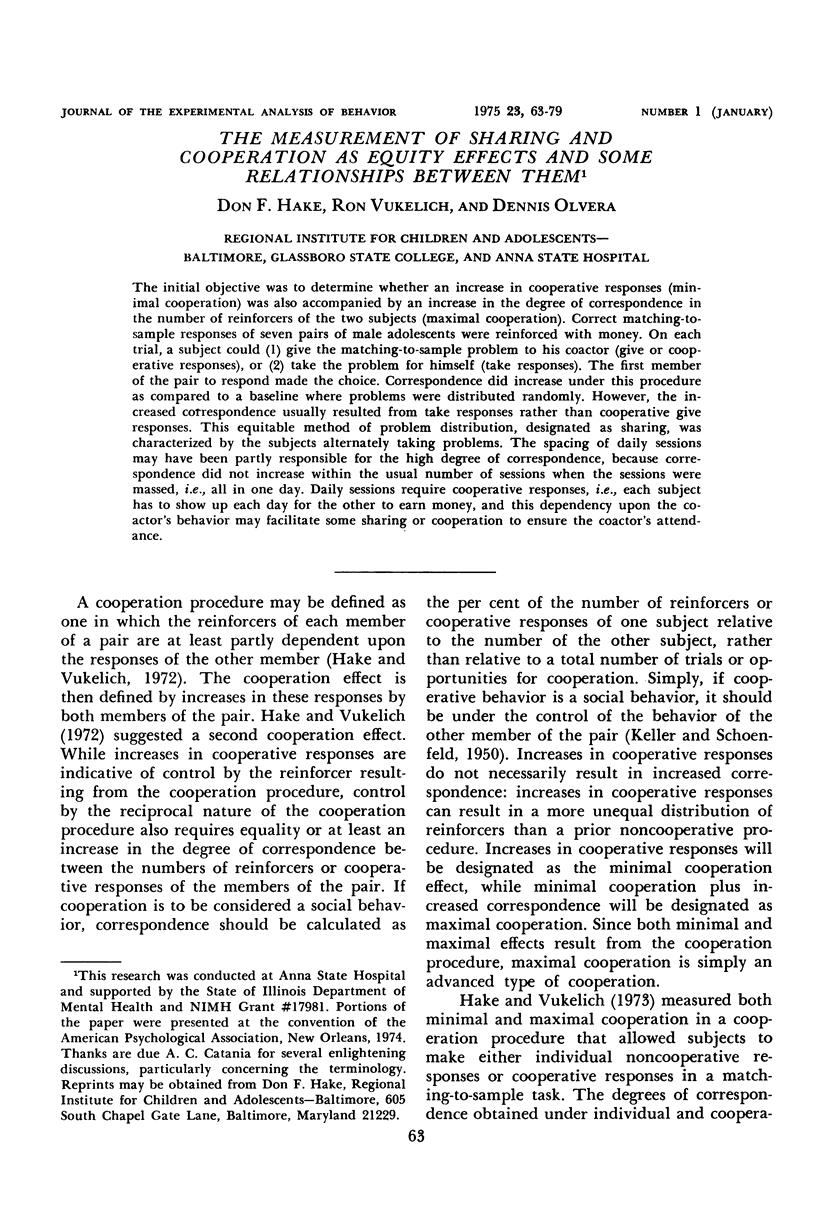
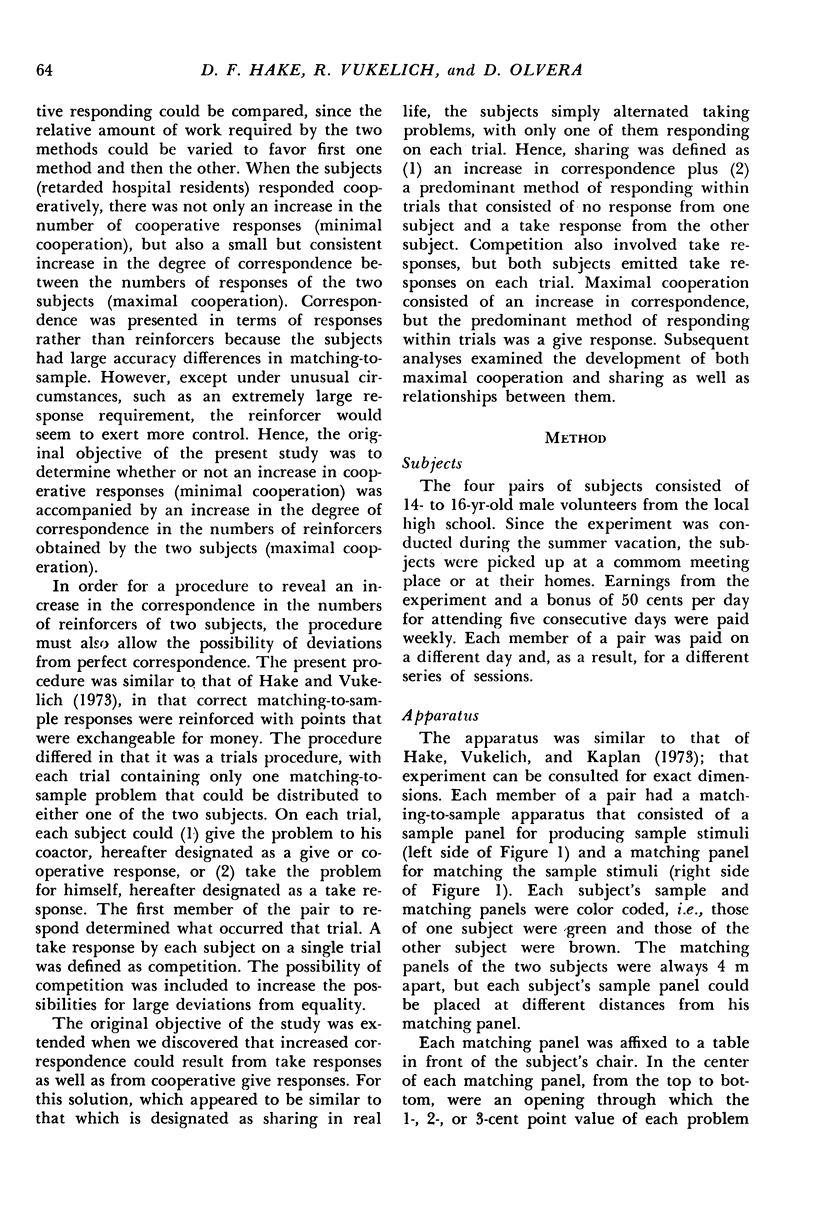
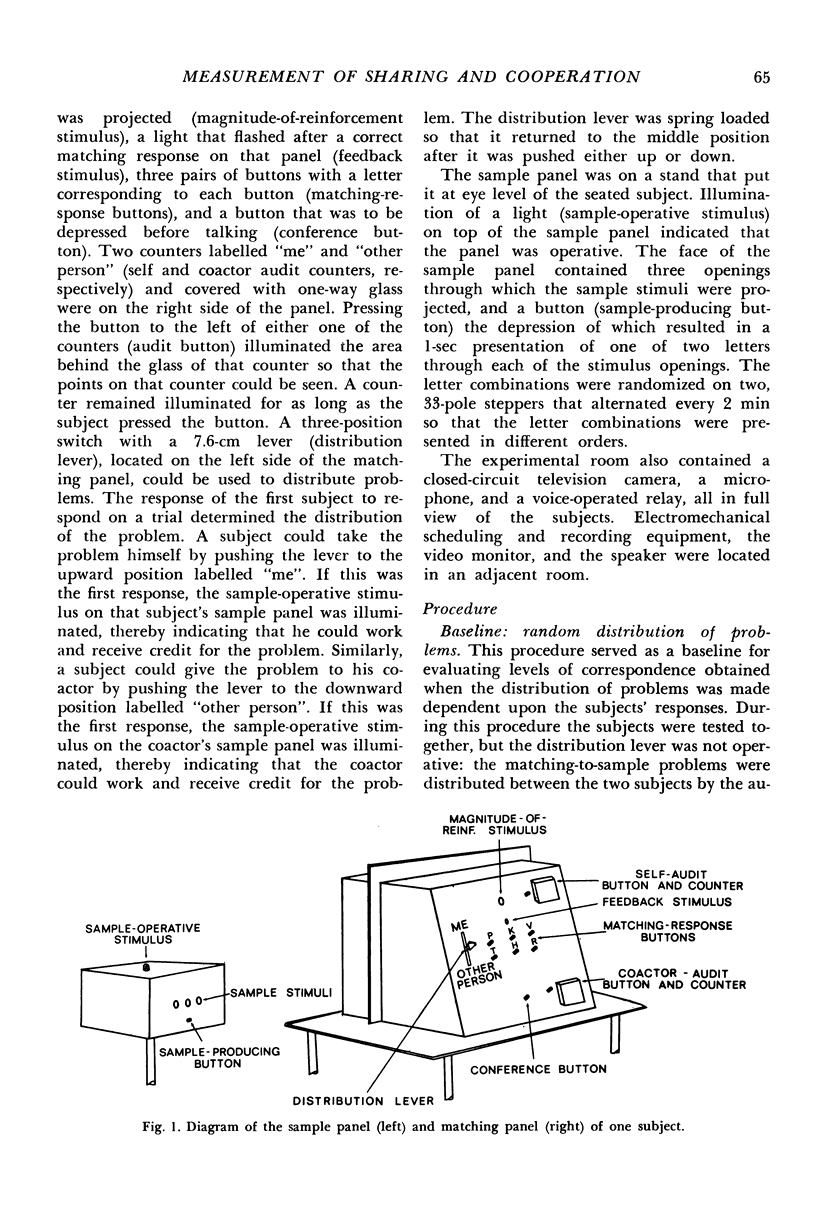
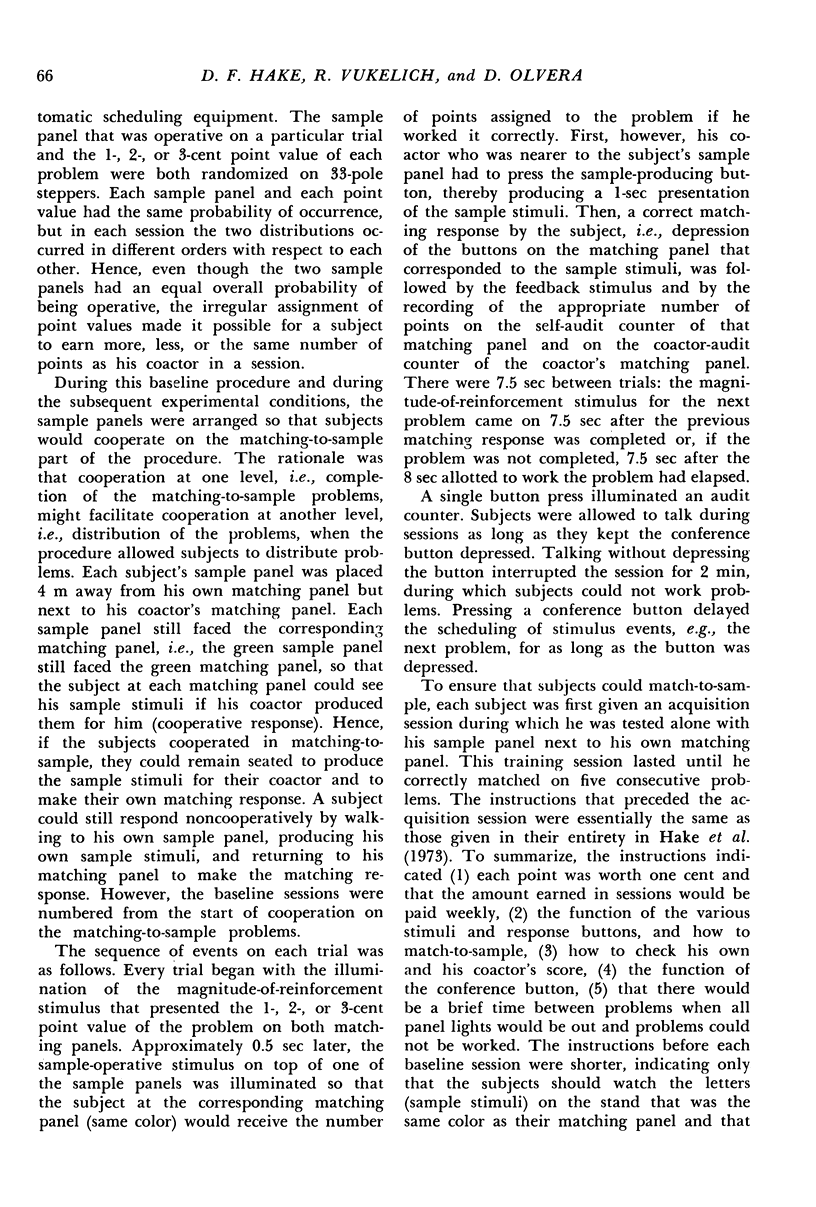
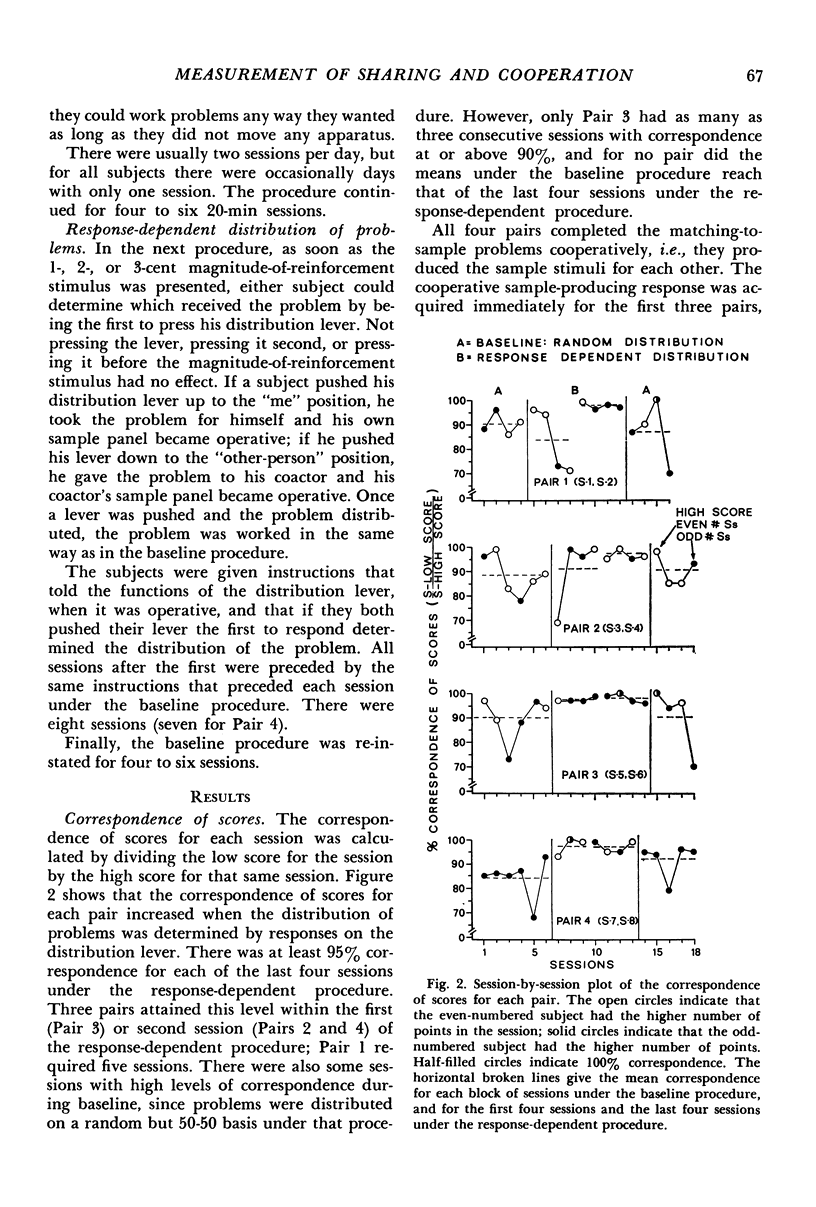
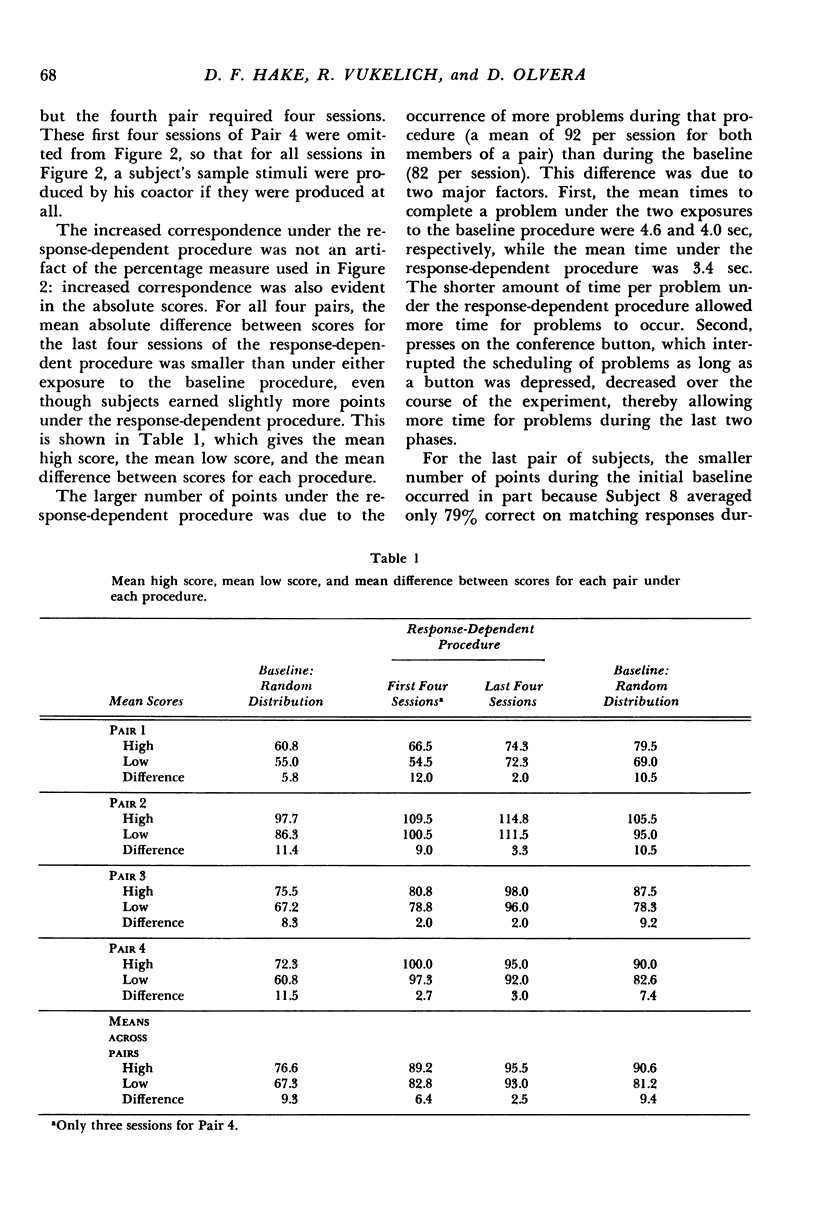
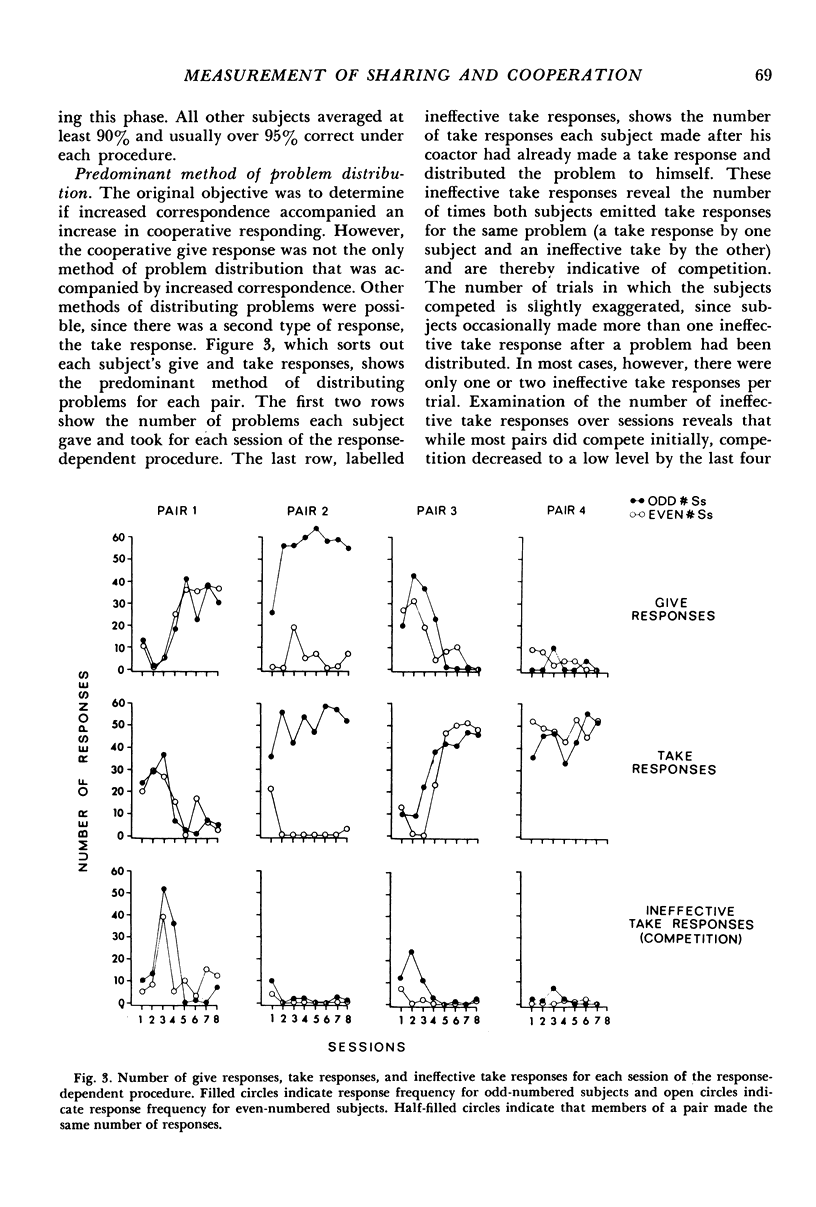
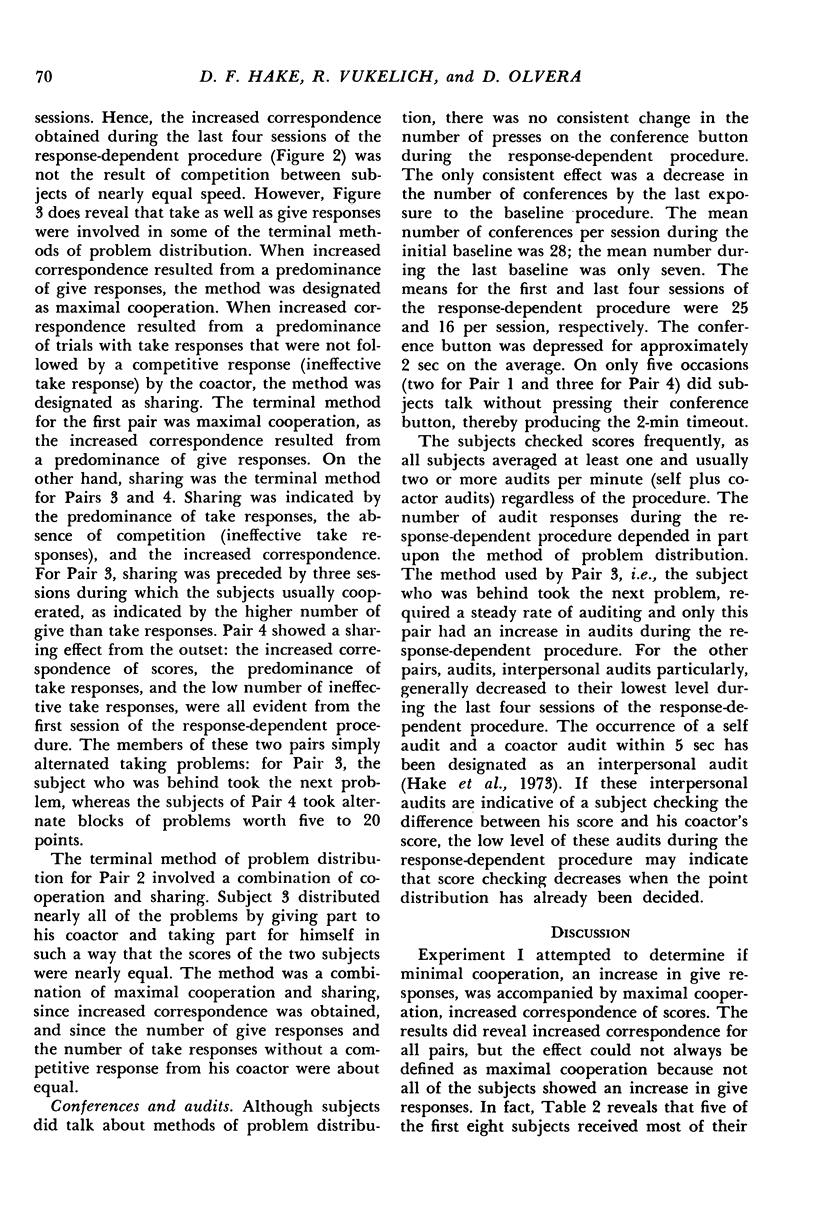
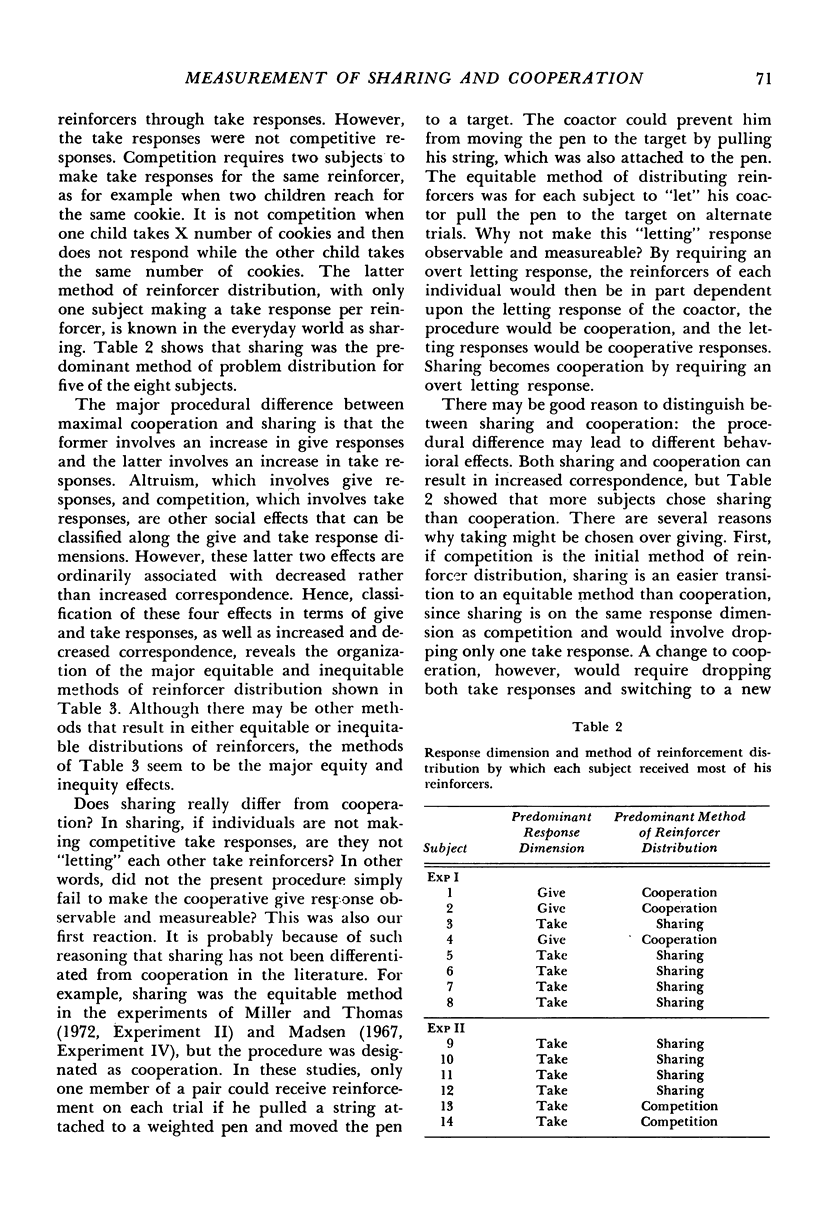
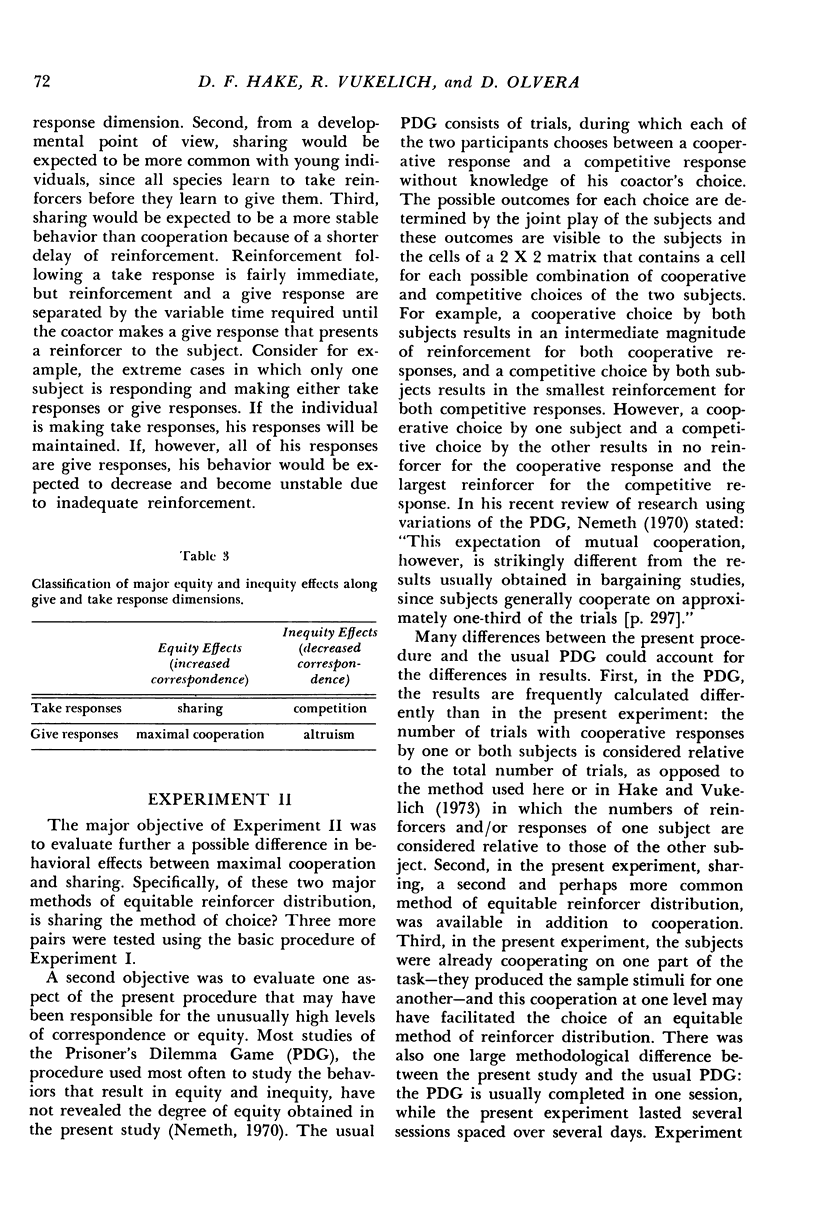
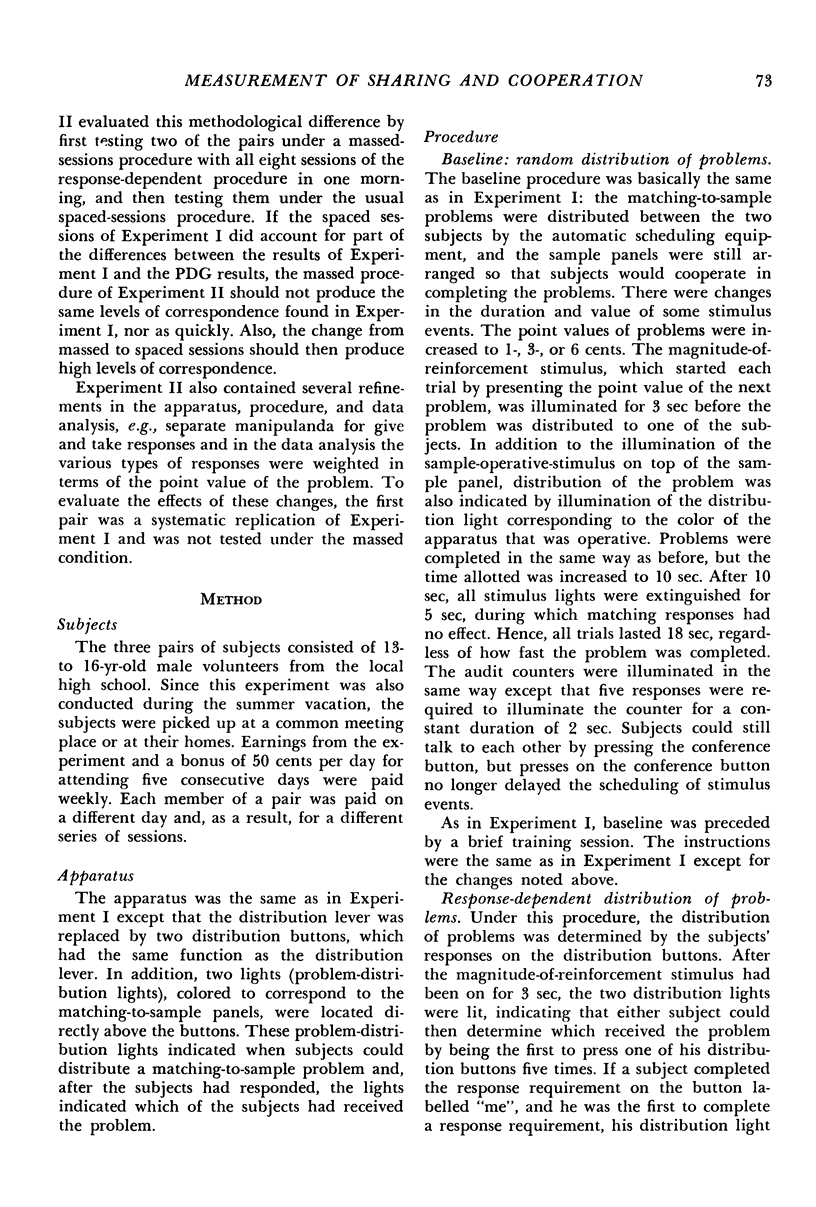
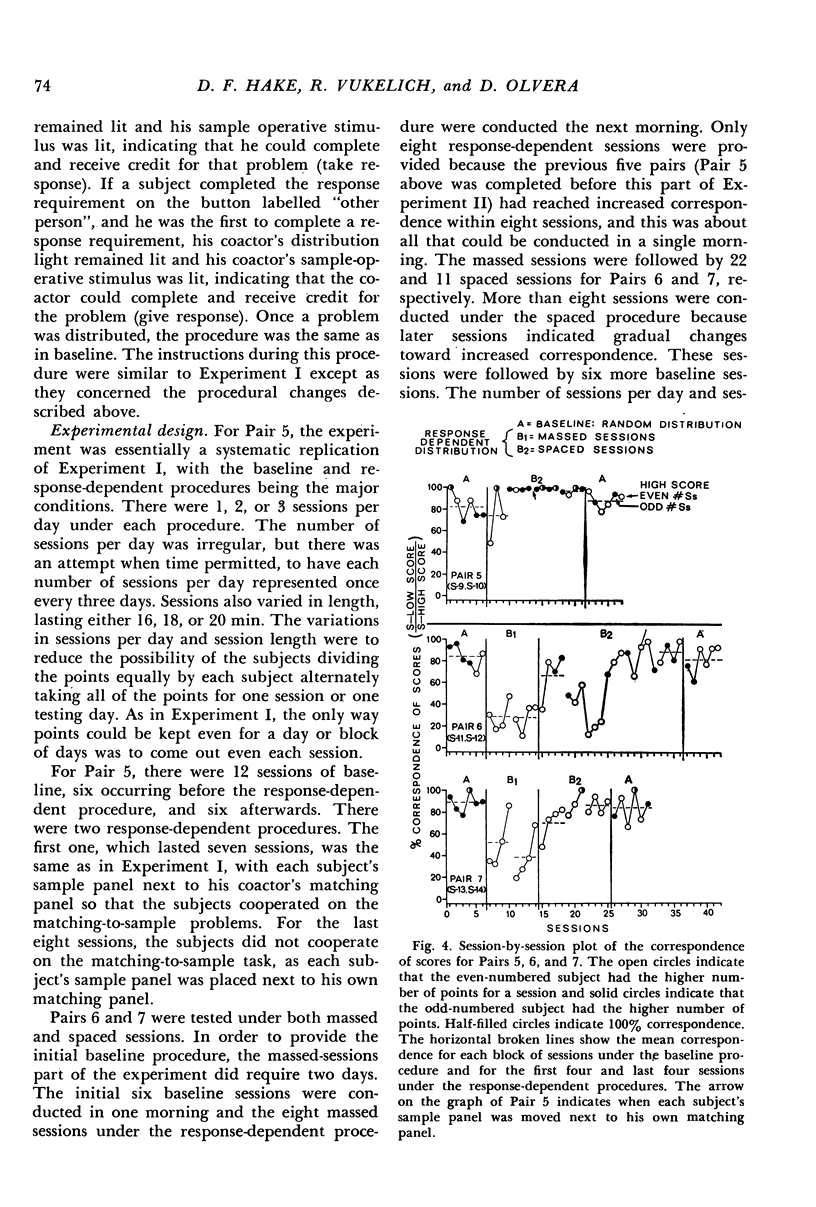
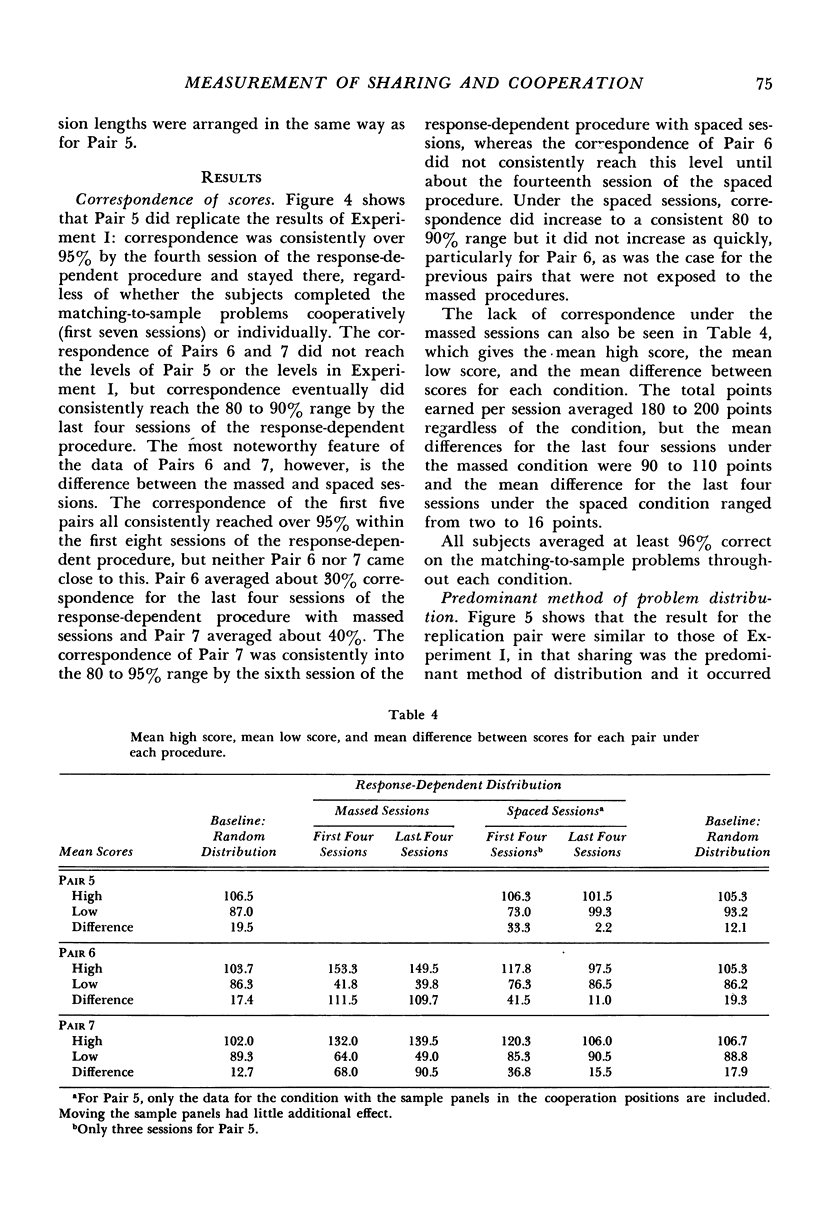
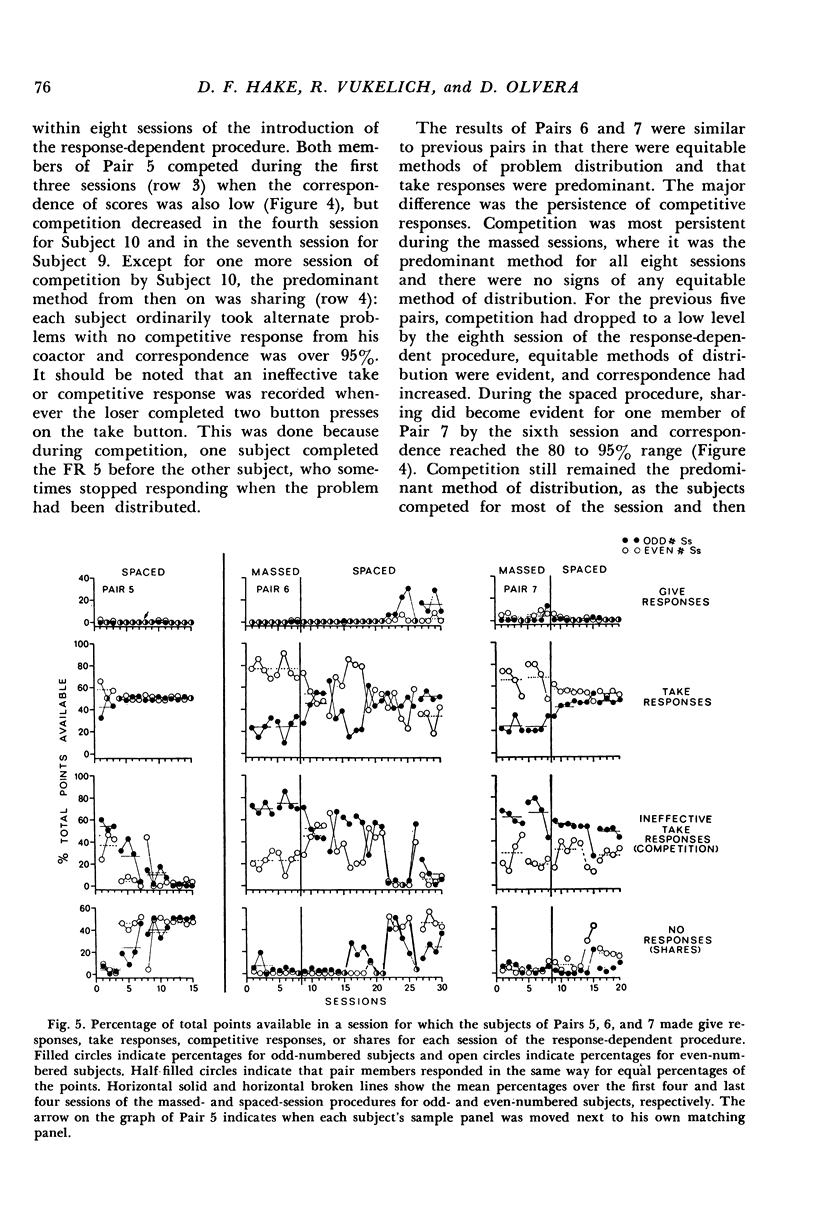
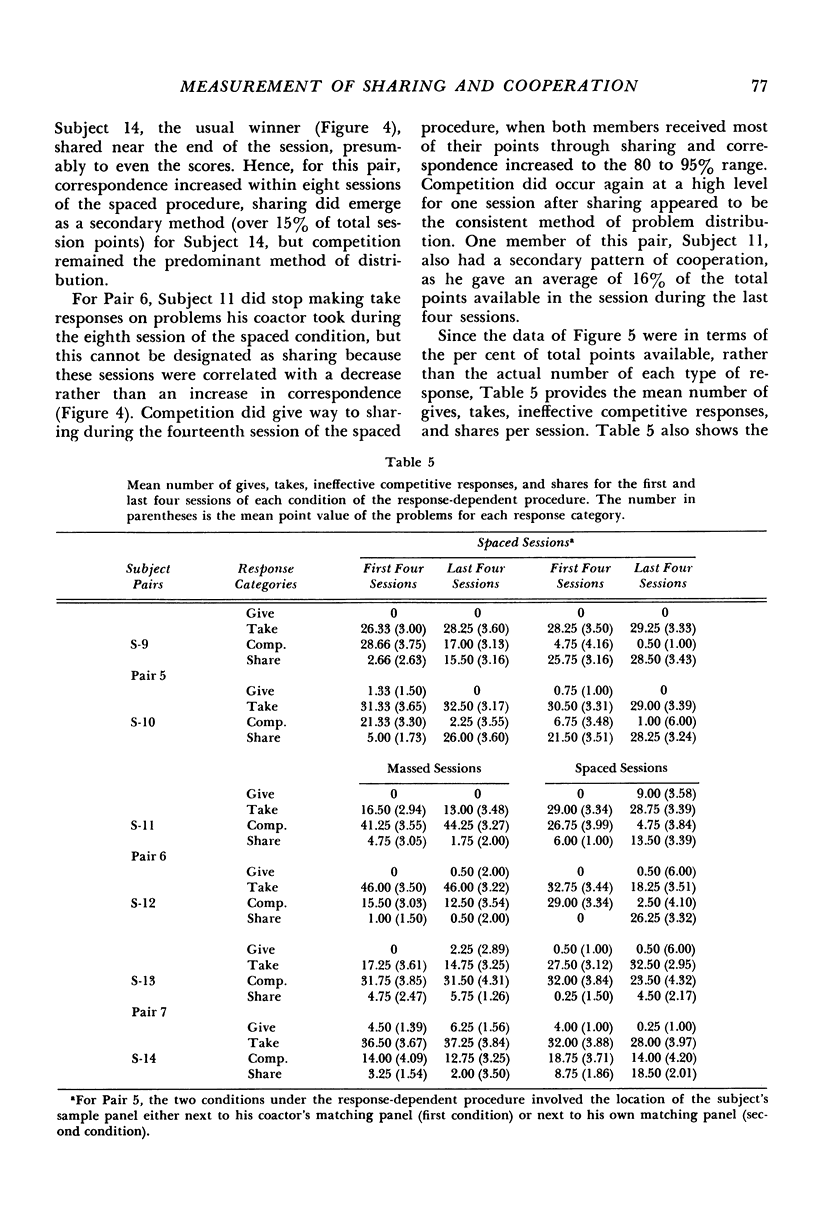
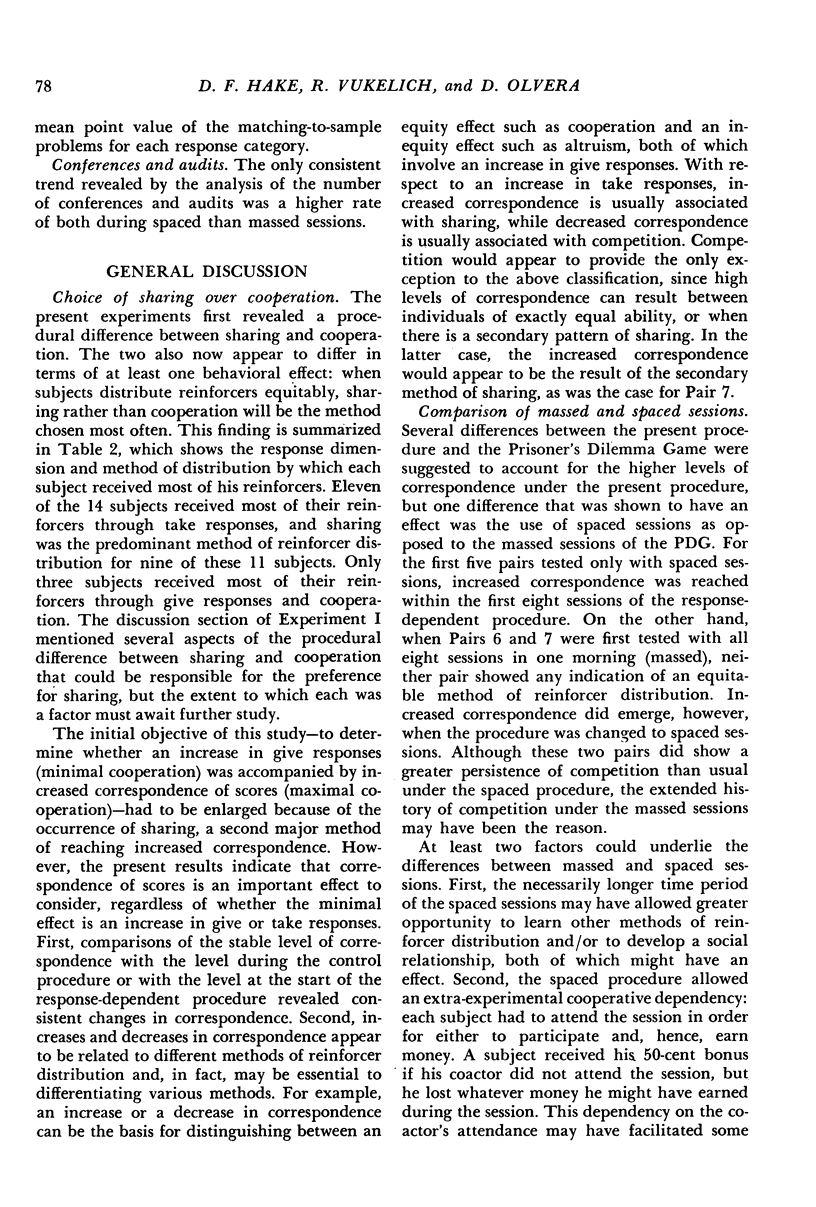
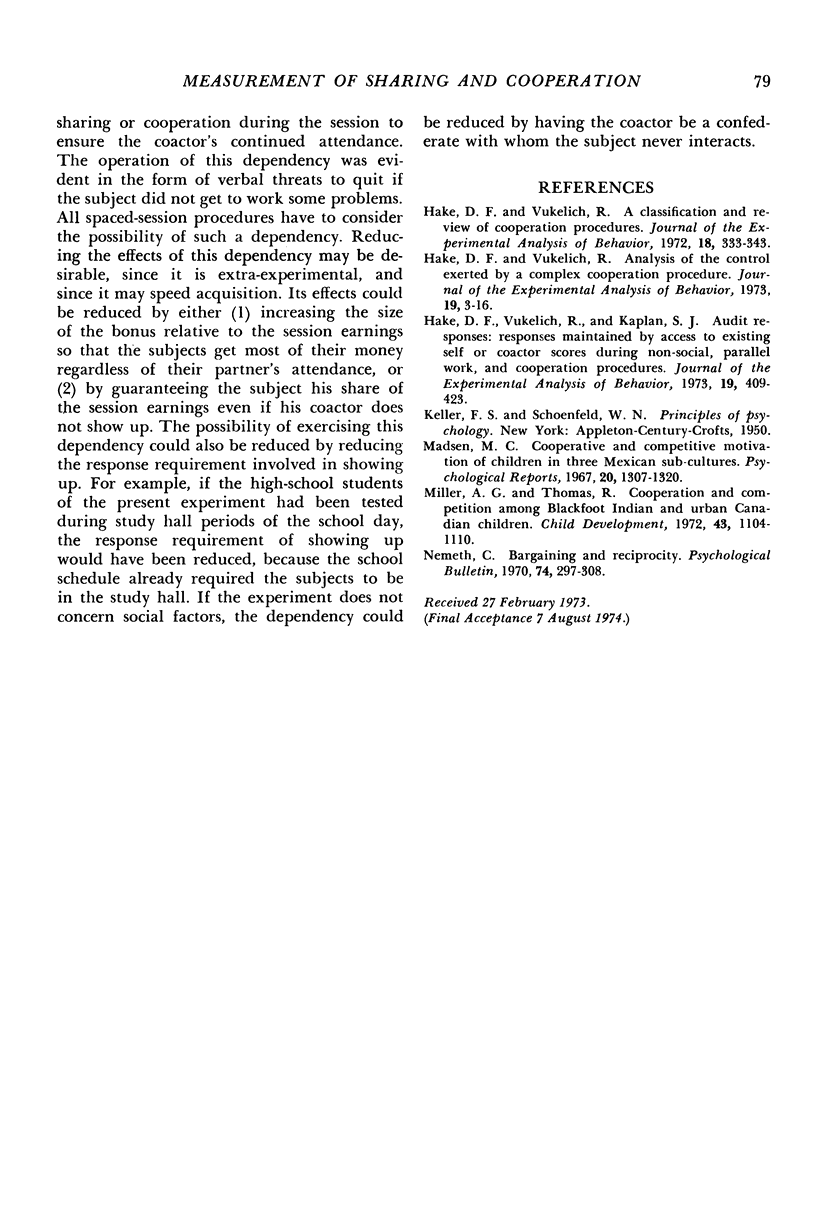
Selected References
These references are in PubMed. This may not be the complete list of references from this article.
- Hake D. F., Vukelich R. A classification and review of cooperation procedures. J Exp Anal Behav. 1972 Sep;18(2):333–343. doi: 10.1901/jeab.1972.18-333. [DOI] [PMC free article] [PubMed] [Google Scholar]
- Hake D. F., Vukelich R. Analysis of the control exerted by a complex cooperation procedure. J Exp Anal Behav. 1973 Jan;19(1):3–16. doi: 10.1901/jeab.1973.19-3. [DOI] [PMC free article] [PubMed] [Google Scholar]
- Hake D. F., Vukelich R., Kaplan S. J. Audit responses: responses maintained by access to existing self or coactor scores during non-social, parallel work, and cooperation procedures. J Exp Anal Behav. 1973 May;19(3):409–423. doi: 10.1901/jeab.1973.19-409. [DOI] [PMC free article] [PubMed] [Google Scholar]


